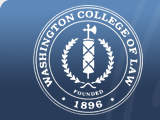Abstract
The central proposition of this Article is that the school/student relationship is a distinctive one, and that student speakers on school property stand in a fundamentally different posture than do pamphleteers on the public sidewalk. This unique relationship has been recognized by the courts, but only selectively, where the uniqueness works to the disadvantage of the speaker. It is time that courts acknowledge that, because students are “captive” in school for the best hours of their day, and because students have a legally enforceable right to be on school grounds for purposes that expressly include the exchange of ideas, student speech disputes are not susceptible to analysis under the same framework that applies to picketing in a park. It is especially vital that Tinker be invigorated and that school regulatory decisions be subject to meaningful review now that school officials have begun asserting, at times successfully, the authority to police entirely off-campus speech based on the rationale that the speech can enter or impact the school by means of the Internet. The better view is that off-campus speech is just that—off campus—and that none of the rationales for expansive school authority can justifiably apply to speech off school property. But a number of courts are accepting uncritically the proposition that the special First Amendment infirmities under which students labor on school premises during school time follow these young people everywhere they go by dint of their student status. In other words, the schoolhouse gate that once cabined school authority now swings in the other direction. If it becomes accepted that Tinker supplies the standard for review of school regulation of students’ speech on Saturday in their own bedrooms, then that standard must necessarily stand for something more than “reasonableness-minus.” Otherwise, courts will have created a constitutional underclass who must graduate, or drop out, to be treated as full-fledged citizens.
Recommended Citation
Lomonte, Frank D. “Shrinking Tinker: Students are Persons under Our Constitution - Except When They Aren’t.” American University Law Review 58, no. 5 (June 2009): 1323-1359.

